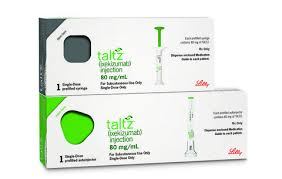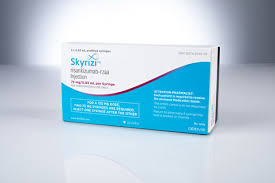Lilly and AbbVie have presented new data regarding their psoriasis treatment during the World Congress of Dermatology from June 10-15 in Milan, Italy.

Lilly presented its five-year phase 3 data for Taltz (Ingredient: ixekizumab). The data showed that patients with moderate to severe plaque psoriasis who continued to receive Taltz maintained high levels of skin clearance with no unexpected safety outcomes for up to five years of treatment.
A hundred patients who were static Physician's Global Assessment (sPGA) 0 or 1 responders at Week 12 and who completed 60 weeks of treatment participated in the UNCOVER-1 trial.
During the study, Taltz demonstrated sustained response from week 60 through week 264 in patients who continuously received on-label dosing -- 160 mg starting dose, 80 mg every two weeks through week 12, and every four weeks after that.
Response rates were maintained over the five years, with Psoriasis Area and Severity Index (PASI) 75, 90 and 100 response rates of 94.3, 81.8 and 46.6 percent, respectively at week 264.
"Of patients who continued to take Taltz through five years in the extension period of this study, more than 90 percent maintained significant skin clearance as measured by PASI 75 and almost half of the patients maintained completely clear skin," said Craig Leonardi, lead investigator of the study and adjunct professor of dermatology at St. Louis University School of Medicine.
These results demonstrate that patients taking Taltz can achieve sustained skin clearance over the five-year treatment period, he added.

During the conference, AbbVie presented its data on its IMMhance trial into Skyrizi (Ingredient: risankizumab).
The data showed that a significant number of patients treated with the drug experienced complete skin clearance at week 94.
In detail, the study re-randomized patients who achieved a static Physician Global Assessment (sPGA) score of clear or almost clear (sPGA 0/1) at week 28 to either continue their treatment with Skyrizi or withdraw.
After 94 weeks of continuous treatment with Skyrizi, 73 percent and 72 percent of these patients achieved an sPGA score of clear (sPGA 0) and a 100 percent improvement in the Psoriasis Area and Severity Index (PASI 100), respectively, compared to 2 percent of patients re-randomized to withdrawal.
"In the IMMhance study, Skyrizi provided an increasing number of patients with complete skin clearance up to 94 weeks," said Melinda Gooderham, dermatologist and medical director at the SKiN Centre for Dermatology in Peterborough, Ontario and a study investigator.
Skyrizi not only offers relief from the signs and symptoms of psoriasis following withdrawal from medication, but the study further demonstrates the significant rates of complete skin clearance that can be achieved with continuous treatment at the recommended dose, she went on to say.
These data underscore the lasting impact this new treatment option could have on people living with psoriasis, Gooderham added.

